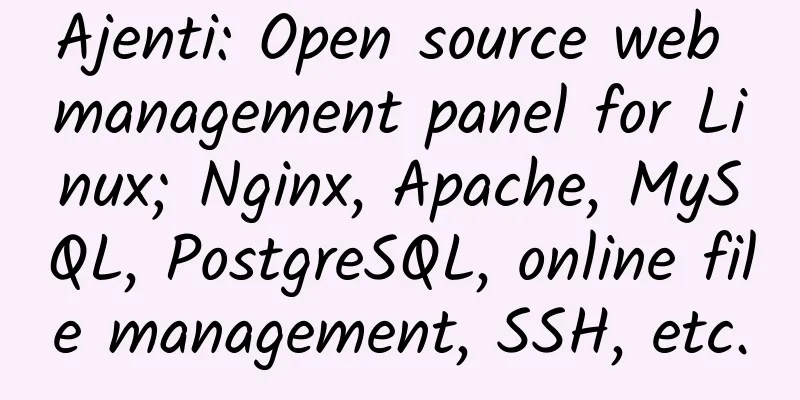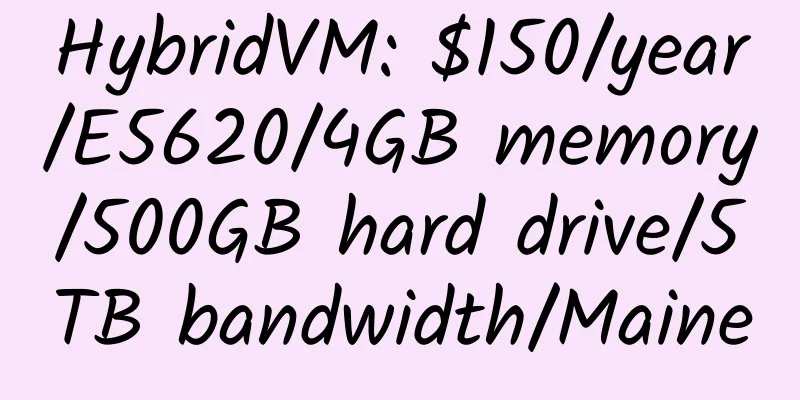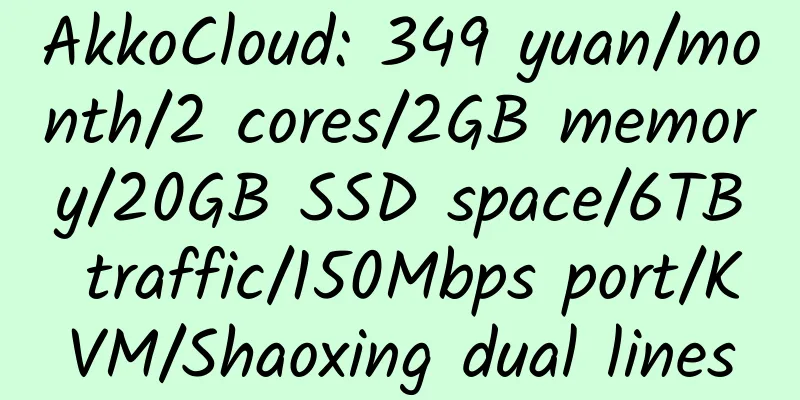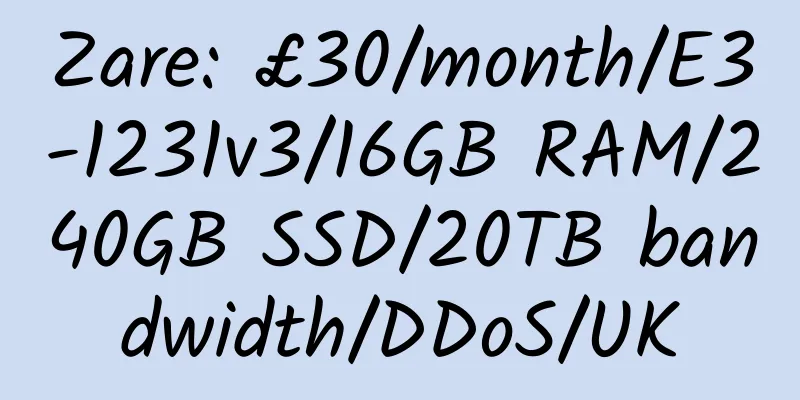Ajenti: Open source web management panel for Linux; Nginx, Apache, MySQL, PostgreSQL, online file management, SSH, etc.

|
Ajenti, an open source web management panel, is suitable for Linux systems. It is fully functional and has been developed for many years. It is rich in functions and suitable for various Linux systems. Supports Debian, Ubuntu, CentOS, Redhat, FreeBSD, etc. The latest version is recommended. Ajenti 1 is recommended, which contains various website building components; Ajenti 2 is too lightweight, but you can make your own components. 1. Installation and use of Ajenti 1 taking Centos7 as an example Need to configure Ajenti V (website management) to use. wget ftp://ftp.pbone.net/mirror/ftp5.gwdg.de/pub/opensuse/repositories/home:/pstorz:/eric/RedHat_RHEL-6/noarch/python-chardet-2.1.1-25.1.noarch.rpm wget ftp://ftp.univie.ac.at/systems/linux/fedora/epel/6/i386/python-lockfile-0.8-3.el6.noarch.rpm rpm -ivh python-chardet-2.1.1-25.1.noarch.rpm rpm -ivh python-lockfile-0.8-3.el6.noarch.rpm 2. Install Ajenti 1 a. CentOS 6 system
b. CentOS 7 system
c. Debian system
d. Ubuntu system
Browser access: https://IP:8000, username is root, password is admin 3. Install Ajenti V Such as installing Nginx, Mysql, PHP7.0 yum install ajenti-v ajenti-v-nginx ajenti-v-mysql ajenti-v-php7.0-fpm php7.0-mysql service ajenti restart Ajenti V related help documents: https://support.ajenti.org/knowledge-bases/5-kb/categories/1-ajenti-v/articles 2. Installation of Ajenti 2 using Centos7 as an example 1. Install related components sudo apt-get install build-essential python-pip python-dev python-lxml libffi-dev libssl-dev libjpeg-dev libpng-dev uuid-dev python-dbus RHEL/CentOS systems sudo yum install gcc python-devel python-pip libxslt-devel libxml2-devel libffi-devel openssl-devel libjpeg-turbo-devel libpng-devel dbus-python 2. Automatically install Ajenti curl https://raw.githubusercontent.com/ajenti/ajenti/master/scripts/install.sh | sudo bash -s - Browser access: IP:8000, username is root, password is root password 3. Install plugins a. Install NodeJS # Using Ubuntu curl -sL https://deb.nodesource.com/setup_7.x | sudo -E bash - sudo apt-get install -y nodejs # Using Debian, as root curl -sL https://deb.nodesource.com/setup_7.x | bash - apt-get install -y nodejs # Using RHEL or centos, as root curl -sL https://rpm.nodesource.com/setup_7.x | bash - yum install nodejs b. Install build tools npm -g install bower babel-cli babel-preset-es2015 babel-plugin-external-helpers less coffee-script angular-gettext-cli angular-gettext-tools # Ubuntu or Debian: apt-get install gettext # RHEL or CentOS yum install gettext c. Install ajenti-dev-multitool pip install ajenti-dev-multitool d. Install plugins ajenti-dev-multitool --new-plugin "plugin name" cd plugin nameajenti-dev-multitool --build sudo ajenti-dev-multitool --run-dev Official website : http://ajenti.org |
Recommend
[Black Friday] ServerStadium: $16.5/month/2*L5420/16GB memory/500GB hard drive/10TB traffic/1Gbps bandwidth/Seattle
ServerStadium is a long-established American host...
$1/month/1G space/100G traffic/virtual host: HostUG
HostUG Introduction HostUG is an American hosting...
CrownCloud: $30/year/3GB memory/50GB space/3TB traffic/OpenVZ/Los Angeles
CrownCloud, a US hosting provider, has been opera...
$5/month/512M/30G space/1000G traffic VPS —— YDGH
YDGH started providing hosting services in 2008 a...
CR Servers: $20/month/1GB RAM/10GB storage/unlimited bandwidth/KVM/Costa Rica
CR Servers, a Costa Rican hosting provider, provi...
turnkeyinternet: $4.24/month/1GB RAM/5GB SSD space/unlimited traffic/1Gbps port/KVM/California/New York
Turnkeyinternet, founded in 1999, has its own New...
Netim: .eu domain name discount, 10 years for only 12 euros, only in Europe
Netim.com, owned by FranceDNS, mainly provides do...
Get $25 off Ubiquity Servers VPS
I have introduced Ubiquity Servers’ KVM VPS befor...
WattaServer: $22.5/month/2*L5420/16GB memory/500GB hard disk/10TB traffic/DDoS protection/Seattle
Watta Server, an American hosting provider, was f...
StarryDNS: KVM VPS in Hong Kong/Japan/Korea, 3GB RAM, 100Mbps bandwidth, $76.5 per year
StarryDNS, a Hong Kong merchant, has been introdu...
IdeaStack: $5/month/1GB memory/30GB space/1TB traffic/KVM/Seattle/windows
IdeaStack, an Indian hosting provider, mainly pro...
STSDUST: 30.55 yuan/month/384MB memory/5GB space/500GB traffic/50Mbps-200Mbps port/NAT/KVM/Guangzhou Mobile
STSDUST, a Chinese merchant, was established in A...
$129/month/16G/2T space/100M bandwidth/5IP dedicated server——AlniTech
AlniTech is located in North Carolina, USA, on th...
UltraVPS: $18/year/1 CPU/512MB/10GB SSD/1TB bandwidth/KVM
UltraVPS, compared to the previous package offer ...
RAKsmart: 399 yuan/month/2*L5630/16GB memory/1TB hard disk/unlimited traffic/100Mbps/San Jose/domestic optimization
RAKsmart is a Chinese hosting company that focuse...









